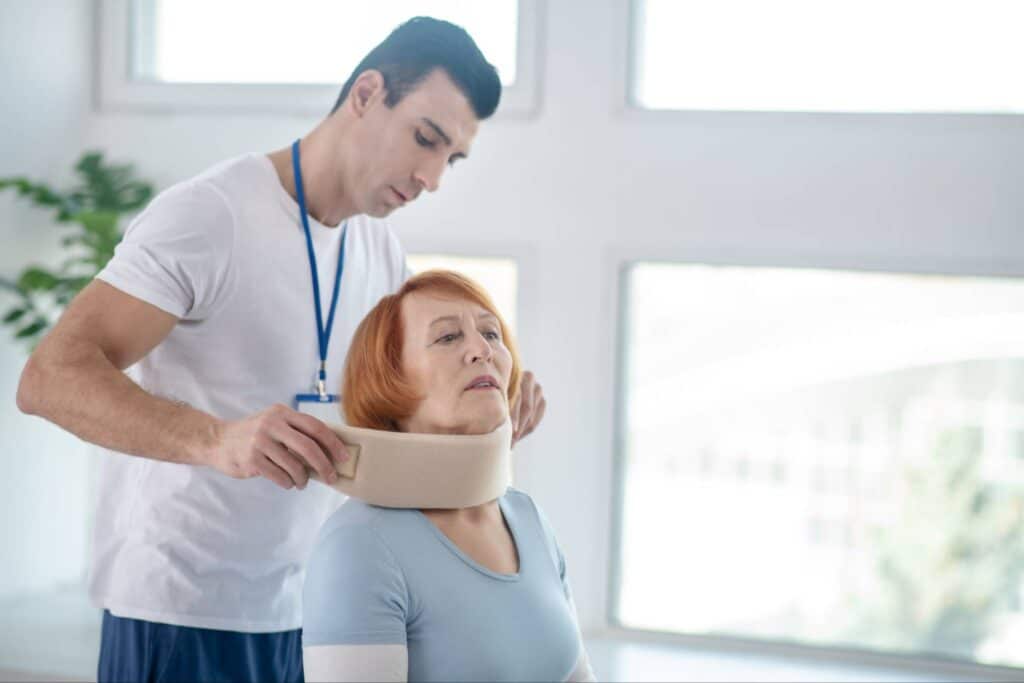For many of us, our instinct after an injury is to use a bandage or some other wrapping to protect the site. When it comes to hand injuries, this can often be a helpful way to avoid further injury before you are able to seek care from a hand surgeon in Atlanta. If you are in a situation where you need to wrap your hand or the hand of someone you are with, it is important to avoid injuring the hand further and to wrap the hand appropriately. Read on for information on how, when, and why to wrap a hand before seeking medical attention.
Reasons to Bandage Your Hand
There are a number of personal injuries where a proper bandage or wrapping can save you further damage in the time before you are able to visit a hand surgeon in Atlanta.
Fracture
A fracture is when one or more of the bones in your hand is broken. The most common type is known as a boxer’s fracture, where you break the bones at the base of your knuckles where the fingers and hand meet, though any bone in the hand can be broken. You will know you’ve fractured a bone when your hand is visibly bent or deformed, but it may also be bruised, swollen, tender, and unable to be moved. Your hand can be numb or in severe pain.
A bandage can sometimes be helpful in restricting the movement of a broken hand or finger to reduce pain. However, if your hand is wrapped with bones misaligned, this can cause more damage. It is best to see a doctor immediately and allow them to wrap your hand and try to keep it still in the meantime.
Sprain
A ligament is the tissue that connects the bones inside of your hand, and when this tears, it is known as a sprain. Sprains are very likely to occur in the thumb, though they are possible in all ligaments. While this is usually not a medical emergency, they will eventually require treatment from a doctor. Before your appointment, you can use a compression bandage to place pressure on the sprained area, preventing swelling and aiding with healing. If your pain or swelling worsens, your doctor may suggest a splint to further restrict movement.
Strain
When you stretch or tear the muscles and tendons in your hand, this is a hand strain. This commonly occurs in the tendons connecting the wrist to the forearm and fingers. One common cause is repetitive movements such as typing. Similar to sprains, a strain is not a medical emergency but may eventually require care. A compression bandage can be used to immobilize the area and create pressure until you are able to see a doctor.
Wounds
A laceration or puncture on the hand could count as a wound, usually resulting in torn skin and bleeding as a result of handling sharp objects or other accidents. Minor wounds will heal on their own, but remember that hands contain a large number of nerve endings, tendons, and blood vessels that could be damaged. If you experience excessive bleeding or pain, any debris in the wound, numbness, or inability to move the hand, you should seek immediate medical attention. In other instances, a bandage can help keep a minor wound clean. You should first rinse the injury, then apply an antibiotic ointment and cover the wound with gauze and a bandage. The bandage should be changed out at least daily to keep the area clean.
Burns
Burns commonly occur on the hands due to exposure to heat, flames, or other hot substances, though burns can also be chemical in nature. Minor burns don’t typically require medical care, but signs of a major burn include dry or tough skin, charred patches, black or brown patches, and deep or large burns. In the case of a minor burn, a bandage can improve healing. Once the affected area has been cooled and moisturized, a loose gauze bandage can help protect skin while allowing it to heal.
Things to Remember
In any situation where you are wrapping a hand, you will want to take precautions to ensure it is done safely. You should avoid making the bandage too tight, even in cases where pressure is needed, and all materials should be new and sterile. The materials should go beyond the injury site to evenly apply pressure to the whole hand. And importantly, if a wound appears to be infected, such as a red or swollen appearance, being hot to the touch or tender, it should not be bandaged and instead be treated immediately.
When to Seek Care
If you have a serious hand injury or are unsure of the condition, you should seek a medical evaluation by a skilled hand surgeon. Atlanta orthopedics can help you treat had pain and injuries. AICA Orthopedics offers a range of specialists who can evaluate, diagnose, and treat your hand injuries today.





